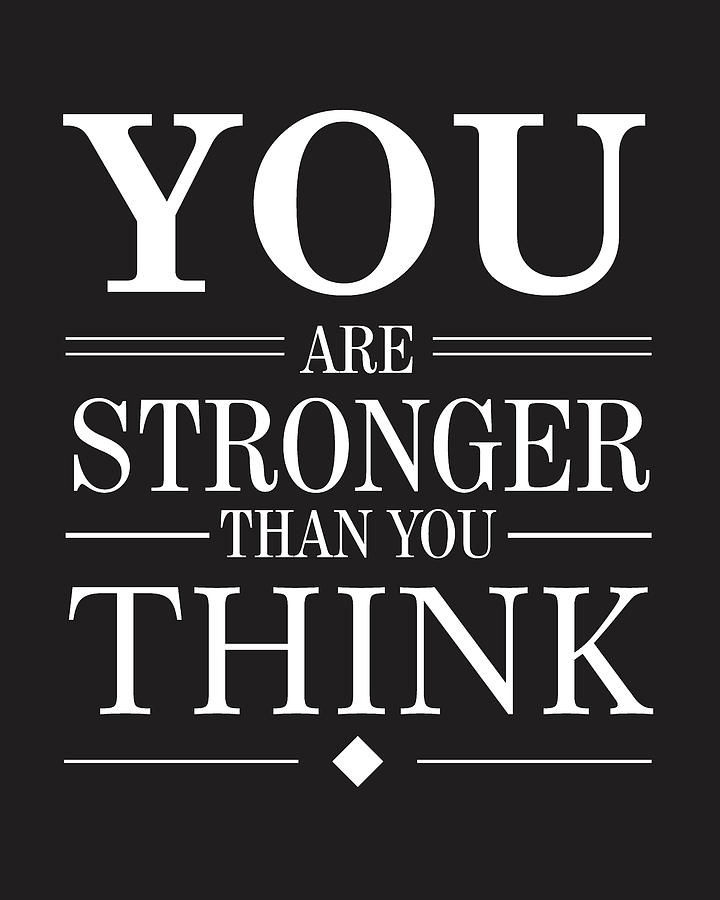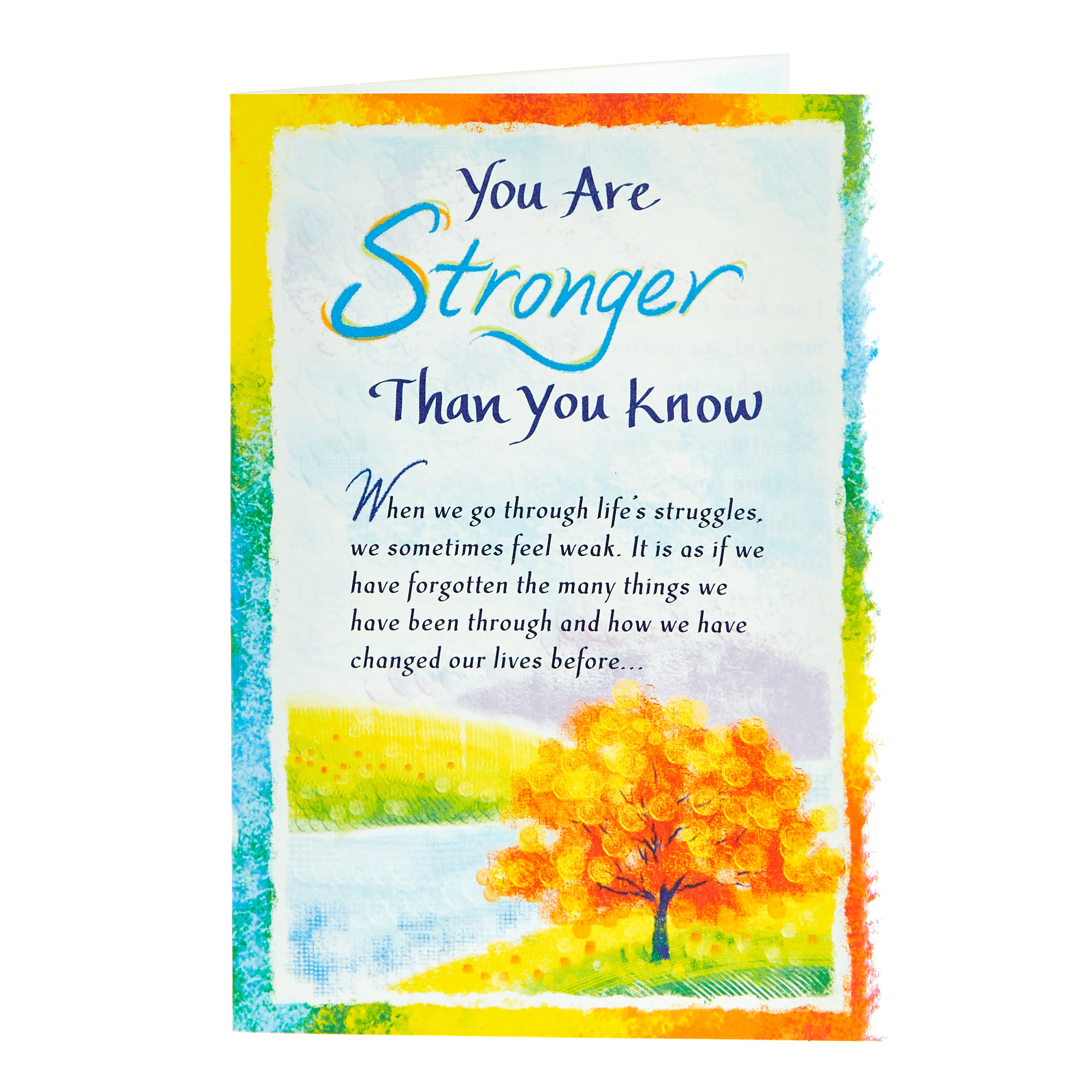
- #You are stronger than you think how to
- #You are stronger than you think trial
- #You are stronger than you think free

Cultivate positivity around you by watching comedies on tv, listening to music that brings back happy memories, looking at photos from great times in the past, contacting old friends and family you haven't spoken to, helping out a neighbour. As mentioned previously avoid self medication and minimise exposure to triggers that will make you spiral such as the evening news and social media feeds. Eat well, get quality sleep, exercise, keep or create new routines, meditate, and be kind to yourself and others. Create some space in your life to take stock of what's happening, what you can control and how you can help yourself and others. When we feel under attack our brain's ability to reason gets compromised making it harder to think rationally.

#You are stronger than you think trial
Top tips on turning trial into triumph from 3 decades of research (THRIVE) So you can start benefiting from THRIVE straight away I've provided a quick summary of it below. In it he shares a fantastic model based on the acronym THRIVE.
#You are stronger than you think how to
Since this time he has relentlessly researched how to increase the likelihood of growing from trauma, or as he and others now refer to as 'post-traumatic growth' (PTG). What Joseph realised is that post-traumatic stress can be an engine for transformation. This is just half the list of ways people described how their life view had improved.
Joseph also found "the most traumatized were the ones who were least emotionally expressive and who lacked social support".įurther Joseph's research revealed that survivors who self medicated with alcohol, drugs, smoking, sleeping pills and tranquilizers made themselves feel better in the short term but had poorer psychological health and greater difficulties in the long term. One of his early findings that can guide us in this COVID-19 era is that "those who were most distressed were the ones who reported feeling helpless during the accident". Professor Joseph's (pictured above) doctoral study focused on the survivors and the roadblocks to recovery they faced. Not surprisingly many of the survivors subsequently developed post-traumatic stress disorder (PTSD). This excerpt from Professor Stephen Joseph's book titled What Doesn't Kill Us gives us just a taste for the trauma the survivors of the Herald disaster must have faced. As dead bodies floated in the icy water, many expected death, many lost loved ones, many witnessed unimaginable horrors."

The darkness reverberated with screams and shouts of pain and terror. "People collided with one another, crashed into walls and slipped under the ice-cold water as portholes imploded and water flooded the passenger areas. Of the almost 500 people aboard 193 tragically died.
#You are stronger than you think free
Fortunately, insights gained from previous crises humanity has faced provide us with a playbook for how to not just survive COVID-19 but be far stronger as a result of it.įor example, in 1987 a large passenger ferry called the Herald of Free Enterprise sunk in the English Channel. COVID-19 will possibly be the greatest global crisis of our lives.


 0 kommentar(er)
0 kommentar(er)
